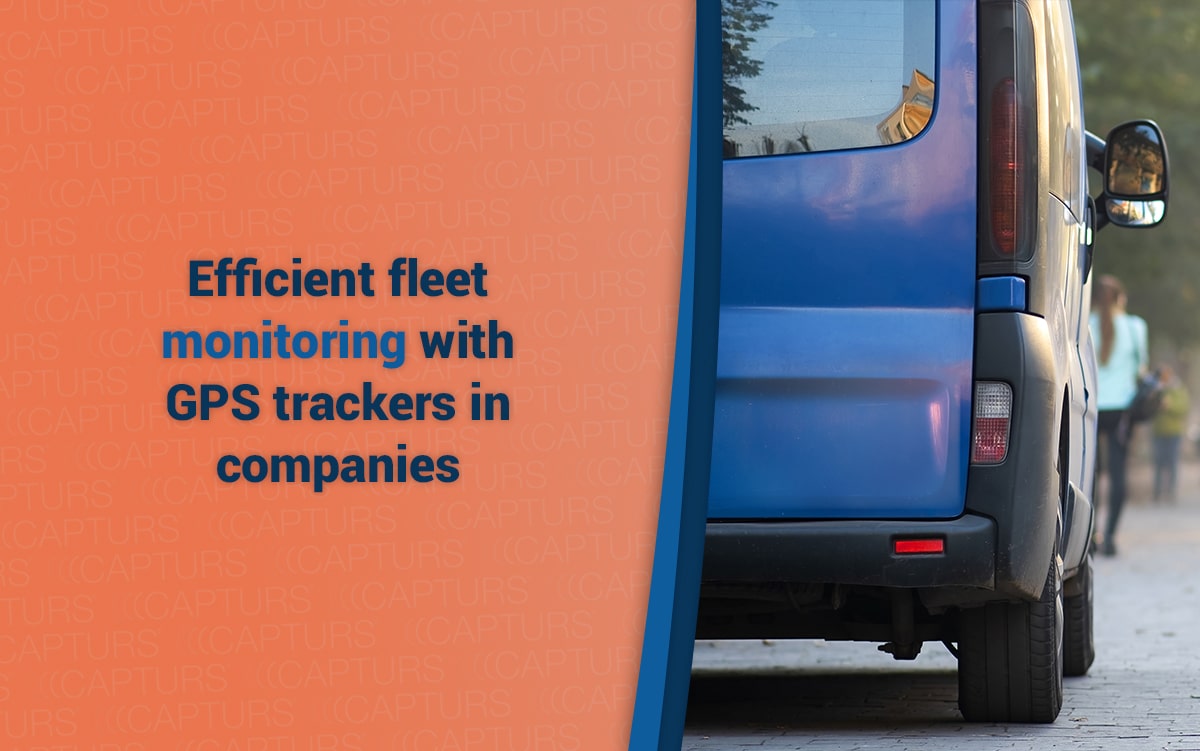Efficient fleet monitoring with GPS trackers in companies

GPS trackers are becoming increasingly popular for corporate vehicle fleets. They provide greater visibility into vehicle location, speed and driving habits, which can help companies improve fleet productivity, safety and efficiency. Depending on the company and industry, the uses of GPS trackers for vehicle fleets differ. In this article, we will discuss the key benefits and features of GPS trackers for fleets, as well as considerations when choosing a fleet tracking system for your business.
- Increase employee efficiency with car GPS trackers
- Controlling the use of cars outside of work hours
- Calculate overall working time with GPS trackers
- Ensure punctuality in the workplace with GPS trackers in vehicles
- Check the presence of vehicles in work areas
- Supervise the fleet of vehicles thanks to the trajectory history of the GPS trackers
Increase employee efficiency with car GPS trackers
The use of GPS trackers in corporate vehicle fleets can play a major role in improving employee efficiency. GPS trackers allow companies to track the location of vehicles in real time, which can help optimize routes and plan tasks more efficiently. Employers can also use the data collected by GPS trackers to assess employees’ driving habits and help them improve their performance accordingly, or practice eco-friendly driving.
By using GPS trackers to monitor vehicle travel, companies can identify opportunities for optimization, such as the fastest or cheapest routes. Employers can also use the data to improve road safety by ensuring that employees adhere to speed limits and encouraging safe driving habits.
Finally, GPS trackers can enhance communication between employers and employees by providing real-time information about tasks at hand and allowing employers to monitor work progress. This enhanced communication can improve employee satisfaction by giving them a better understanding of their responsibilities and helping them plan their time better. GPS trackers can therefore significantly help build a good team organization.
By using GPS trackers to monitor fleet vehicles, companies can maximize employee efficiency by optimizing routes, improving road safety and enhancing communication between employers and employees.

Controlling the use of cars outside of work hours
The use of GPS trackers in company vehicle fleets can be a valuable tool for verifying that vehicles are not being used off-duty. GPS trackers allow employers to monitor the location and movement of vehicles in real time, which can help prevent abuse or unauthorized use.
By using GPS trackers to monitor fleet vehicles, employers can accurately determine if vehicles are being used off-duty. Employers can also use the data to track driving time and mileage to ensure that vehicles are not being used for personal activities.
The data can also be used to verify that the vehicle is not stolen outside of work hours.
To learn more about how to monitor off-duty car use, check out this article.
Calculate overall working time with GPS trackers
GPS trackers allow employers to monitor vehicle movements and locations in real time, which can help accurately calculate the time spent on each task and driving time.
By using GPS trackers to monitor work hours, employers can ensure that employees stay on schedule and on time. GPS trackers can also build transparency and trust by ensuring that vehicles are used responsibly and in accordance with company policies. This can help reinforce the company culture by encouraging employees to behave in a professional and ethical manner.
To learn more about how to calculate work time with GPS trackers, check out this article.
Ensure punctuality in the workplace with GPS trackers in vehicles
The use of GPS trackers can help companies monitor employee on-time performance. GPS trackers allow for real-time tracking of vehicle movements and locations, which can help employers determine if employees are arriving on time to work sites and appointments. Proof of passage is sometimes needed for customers to avoid litigation.
GPS trackers can also help manage unforeseen events such as delays caused by traffic jams or accidents, allowing employers to take steps to maintain business productivity.

Check the presence of vehicles in work areas
The use of GPS trackers can help companies monitor the presence of their employees in specific locations or areas. By tracking vehicle movements and locations in real time, employers can accurately determine whether employees are in the areas intended for business activities.
GPS trackers can be used to monitor the movement of the vehicle fleet and ensure that employees are following company travel policies. This can be especially useful for activities that involve working in specific areas, such as maintenance, delivery, customer service, etc.
By using GPS trackers to monitor employee presence in specific areas, employers can improve the quality of work by ensuring that employees are in the right place at the right time, and can also maximize productivity by using the data to optimize travel.
To learn more about how to check for vehicle presence in work zones, check out this article.
Supervise the fleet of vehicles thanks to the trajectory history of the GPS trackers
The use of GPS trackers can provide companies with complete, real-time monitoring of their fleet’s vehicle trajectories. This tool can provide an unlimited history of vehicle movements, allowing employers to track their fleet’s movements in an efficient manner.
GPS trackers can help companies maximize fleet efficiency by providing data on speed, distance traveled and routes taken. It can also provide a better understanding of employee driving habits and identify opportunities for optimization.
By monitoring their fleet’s movements, employers may also be able to detect inappropriate or dangerous behavior on the road. This can help improve the safety of employees and passengers, as well as other road users.
GPS trackers can also provide a detailed view of vehicle utilization, allowing employers to determine their efficient use and identify opportunities for optimization.
By using GPS trackers to monitor the movements of their fleet of vehicles, companies can improve fleet efficiency, enhance safety on the road and optimize the use of their resources.
To learn more about how to monitor the vehicle fleet with GPS tracker history, read this article.

